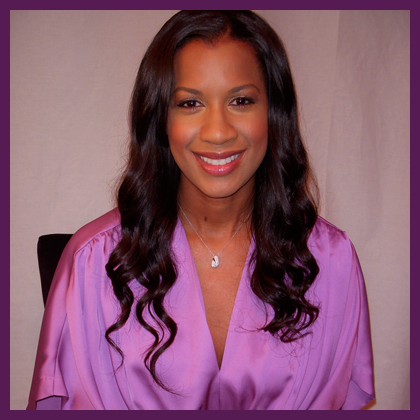Dear Friends,
I believe we can learn a lot from each other’s difficulties and accomplishments. I created the Ask Dr. Michelle column to share my advice with many people at the same time, who although they don’t know it, are often facing some of the same challenges. I hope that my comments provide you with some insight into situations that you are facing in your life. If you have a question that you want me to answer, submit it below. I wish you all the best. (I try to answer as many questions as possible, but please understand that due to the number of questions that I receive I am not able to answer every question.)

How do I become a successful relationship and family counselor?
-

Question: I watch you on TV and I must say that I love what you do. My major is sociology and my minor is psychology. My aspirations are to go to graduate school and get my Master’s in Counseling and become certified in Marriage and Family Therapy. My question is “do you have any advice for someone who is aspiring to become a relationship counselor?” Is there any specific path that I should take in order to become a successful relationship and family counselor?
-

Answer: There are several approaches to a career as a mental health professional who specializes in working with couples. You could become a clinical psychologist, a counseling psychologist, a clinical social worker, a marriage and family therapist, or a relationship coach. Each profession differs by its focus on human behavior and its approach to helping the client(s) resolve problems. In order to know which classes to take and subjects to major in, you really have to do more research to understand which of these jobs (or others) might appeal to you most. Most of the careers require a master’s degree or a Ph.D. and when you are finished with graduate school you typically have to take an exam and become “licensed” to practice psychotherapy in your state.
Some great places to look for more information are:
• The American Psychological Association (www.apa.org). Visit http://www.apa.org/students/brochure/index.html for an online brochure about careers in psychology that explains all of the different types of psychology (clinical, developmental, social, etc.), what psychologists do and how to plan your education and career as a psychologist.• The National Association of Social Workers (www.naswdc.org). Visit https://www.socialworkers.org/profession/default.asp for online brochures that describe the social work profession and how to pursue a career in social work. They include information about certification and accredited schools of social work. Whatever area of mental health you pursue, make sure that your school is accredited—don’t get caught up in these “fake” schools that are mostly diploma mills.
• The American Association for Marriage and Family Therapy (www.aamft.org). Visit http://www.aamft.org/resources/Career_PracticeInformation/career.htm for information on what marriage and family therapists do and how to become one. Other areas of the website provide additional information about graduate schools and how to apply.
• The International Coach Federation (www.coachfederation.org). This is a good resource if you want training in or more information specifically about coaching as a profession. If you are interested in a career in helping people improve their lives through some form of psychotherapy or coaching, I suggest that you obtain traditional graduate school training in some area of human development/behavior and then pursue coaching training. The graduate school training will give you a very strong foundation in understanding and influencing human behavior and make you much more competitive and well prepared to coach.
The truth is that there is no one “right” answer about how to pursue a career in helping individuals and couples. Once you know what kind of people you want to help and with what kind of problems, you will be able to determine which university programs to attend and which classes to take by doing the necessary research.
Good luck!
Dr. Michelle





Leave a Reply